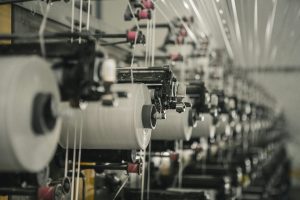Achieving Precision in General Plastic Machining

Precision in plastic machining isn’t just a fancy term; it’s key to creating quality products that meet specific requirements. Whether crafting complex shapes or simple components, precision ensures every piece comes out just right, fitting the intended use perfectly. Think of it like assembling a jigsaw puzzle if each piece isn’t cut accurately, the end result won’t make sense. That’s where precision makes the difference, enabling the creation of parts that are reliable and perform as expected.
Creating high-quality plastic products relies heavily on precise machining processes. These techniques help avoid errors that could lead to wasted materials or flawed products. For businesses and hobbyists alike, understanding the importance of precision in machining is crucial to achieving the best possible outcome in their projects. With advancements in technology, it’s easier than ever to make sure every cut and corner aligns perfectly, leading to better final products that don’t just meet the standards but exceed them.
The Science Behind Precision Machining
Precision machining is a method used to cut, shape, or remove material from a workpiece to create intricate parts with exact specifications. Think of it as sculpting with the accuracy of a finely tuned tool, aiming for perfection in every detail. This process becomes essential when working with materials like plastic, where exact measurements ensure that each product performs reliably.
CNC Machining, one of the significant techniques in precision, uses computer-guided tools to achieve minute accuracy in creating parts. This technology allows for intricate designs that are consistently reproduced without deviation. It uses programming to control the movement and operation of machining tools, ensuring that each piece is crafted to the exact specifications set by the designer. CNC machines can handle detailed work, maintaining precision even in large-scale production runs.
In the realm of shaping large plastic sheets, methods like vacuum forming and thermoforming play vital roles. Vacuum forming involves heating plastic until it’s pliable, then shaping it using a mould, while thermoforming uses heat to form plastic sheets into detailed shapes. Both processes rely on precision at every stage to ensure the final product fits its intended purpose without defects. The controlled heating and shaping provide the exactness needed, making them indispensable for creating uniform products in bulk.
Understanding these processes helps companies and craftspeople alike choose the right technique for their needs, making sure their projects are delivered with the precision required. Getting to grips with these advanced methods allows for more creative possibilities and ensures that whatever the end product is, it meets the highest standards in quality and functionality.
Key Techniques for Achieving Precision
When aiming for top-notch precision in plastic machining, selecting the right materials is a big first step. Different types of plastic offer varied properties. Some are more flexible, others sturdier, and each reacts differently to machining processes. Picking the right plastic ensures that the final product performs well and remains durable.
Next, accurate measurement and cutting are the backbone of precision work. It’s important to measure twice and cut once, ensuring every detail is spot on. Precision cutting tools help maintain accuracy, especially for complex shapes or tight margins. Accurate cuts prevent wasted material and help avoid defects that could affect the performance of the finished product.
Polishing is another technique that enhances product quality. By smoothing out surfaces, polishing not only improves a product’s appearance but also its tactile feel and functionality. It helps remove any minor imperfections left from previous machining steps, ensuring a flawless finish.
The choice of adhesives and welding techniques matters a lot in assembling plastic parts. Properly selected adhesives can hold components securely without sacrificing flexibility. Meanwhile, welding ensures strong, seamless joins, especially in applications that experience stress or high loads.
Common Challenges and Solutions
Precision machining isn’t without its hurdles. Some common issues include dealing with material stress, warping, or misalignment during machining. Temperature changes can affect plastic, leading to unexpected shifts during production.
Solutions often start with understanding the behaviour of different plastics. Pre-heating materials or using consistent environmental controls can help manage stress and warping issues. Aligning components accurately before cutting or assembling minimizes the risk of errors.
Also, remember that reaching out to experts can save time and costs. Consulting with professionals familiar with precision technologies can offer insights that are not immediately apparent and provide tips that can streamline production. Investing in quality tools and advanced technologies can significantly enhance precision, ensuring the finished product aligns perfectly with its design specifications.
How Canus Plastics Inc. Ensures Precision
Canus Plastics Inc. prides itself on offering cutting-edge techniques and technologies that support high precision in plastic product manufacturing. They provide specialized services that contribute to the accuracy and consistency needed for quality outcomes. With skilled experts and state-of-the-art equipment, they ensure that your plastic products are crafted with the utmost attention to detail. The benefits of collaborating with this established plastic fabrication company in Ottawa include gaining access to premium quality products and innovative solutions tailored to specific project needs.
Mastering Precision Plastic Machining in Ottawa
Achieving precision in plastic machining is all about knowing the tools of the trade and understanding how materials work together. Each step, from selecting the right plastic to finishing techniques, builds towards creating products that not only look great but work flawlessly.
Precision isn’t just about fancy techniques; it’s about putting experience and understanding to good use. This means dedicating time to each phase of production, making sure that no detail is overlooked, and constantly learning from each project. As the saying goes, practice makes perfect, and every cycle of production brings further improvement.
In the end, precision machining in plastics offers endless opportunities to create high-standard, innovative products, which are ready to serve diverse needs across many industries. Whether you’re creating household items or specialized components for industrial use, precision is the common thread that ensures success and satisfaction.
Precision and innovation go hand in hand when it comes to creating remarkable plastic products. To make the most of these advanced techniques, consider partnering with a skilled team. Visit Canus Plastics Inc., your go-to plastic fabrication company in Ottawa, which excels in transforming your ideas into reality with unmatched expertise and technologies tailored to your needs.

